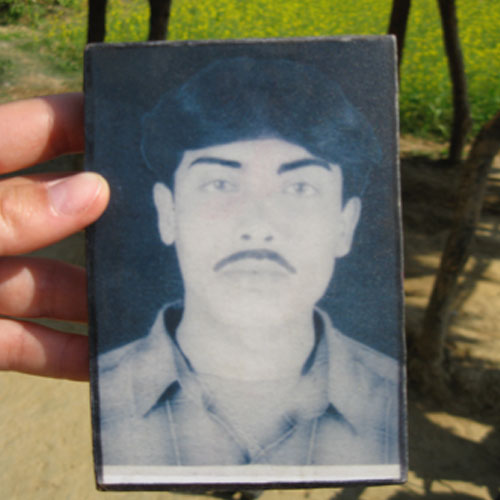
Disappeared young people from Manau
THEIR STORY
On the night of 11 April 2002, eight young people (all of Tharu ethnicity) disappeared from their homes in Nauranga village, Nepal.
Chillu Tharu, Dhaniram Tharu, Kamala Tharu, Lauti Tharu, Mohan Tharu, Prem Prakash Tharu, Radhulal Tharu and Soniram Tharu were aged between 14 and 23. Two of them were girls with five of them believed to be below 18 years old.
The disappearances were allegedly committed by a group of 60 to 70 Nepali Army soldiers, with groups of two to five soldiers breaking into the targeted houses between midnight and 2 am whilst carrying torches and weapons.
The disappearances took place during Nepal’s internal armed conflict (1996-2006), where both Nepal security forces and Maoist insurgents committed atrocities, enforced disappearances were common.
Reliable reports indicate that a high number of enforced disappearances occurred in the Bardiya District and that members of the Tharu community (to which these young people belonged) were specifically targeted.
In each house the soldiers asked for the disappeared person by name, sometimes even seeming to know the location of that person’s bed.
The families received no news for several years despite repeated searches in all of the army camps and police stations within a 50 kilometre radius of the village, and visits to the local authorities.
In 2006, the army informed the Nepaune Committee, the International Committee of the Red Cross (ICRC) and the UN High Commissioner for UN Human Rights Office (OHCHR-Nepal), that seven of the young people were killed in crossfire during an encounter with Maoists in the Manau nursery jungle, but did not provide details about the location of the bodies.
The families refuted the army’s allegations, saying that as the young people left their houses unarmed and under the control of a large group of soldiers they could not have engaged in an armed encounter later that same night and no gunshots were heard in the nearby nursery jungle.
No information has been provided about the fate of Prem Prakash Tharu, the other young person who disappeared in 2002.
ACTION FOR JUSTICE
Non-governmental organisation Advocacy Forum-Nepal assisted the families of the victims to file habeas corpus petitions in the Supreme Court in 2003.
All of the respondents denied detaining the eight young persons. In decisions reached between 24 August 2004 and 25 March 2005, the Supreme Court quashed all of the petitions on the grounds that the authors could not identify where and by whom each young person was being detained.
Having exhausted all available legal avenues, the families of the young people who disappeared submitted a communication to the United Nations Human Rights Committee (UNHRC) on 24 January 2011, represented by Advocacy Forum-Nepal and REDRESS.
The government filed a reply to the complaint, contesting both the admissibility of the communication and the substance of the claims, to which the Authors responded in April 2012.
In July 2014, following the adoption of an act to establish a Truth and Reconciliation Commission in Nepal, the author provided a further update to the UNHRC.
This enclosed an analysis of the Act by Advocacy Forum-Nepal, REDRESS and TRIAL, an OHCHR analysis of the Act, and a statement by UN special procedures mandate holders calling for amendment of the Act.
THE OUTCOMES
The Human Rights Committee decided the case in July 2015.
It found that the eight young people were victims of enforced disappearance, resulting in violations of their rights to life, to be free from torture, to liberty and to the right to recognition as a person before the law.
It further found that the anguish and stress caused to the families of the victims amounted to a serious violation of their human rights.
QUICK FACTS
- Court/Body: United Nations Human Rights Committee
- Case Name: Tharu et al v Nepal
- Date Filed: 2003
- Current Status: Decision reached
- Legal Representation: REDRESS and Advocacy Forum-Nepal
KEY WORDS
Habeas corpus is a writ which can be applied to order a person’s release if they have been imprisoned unlawfully.
A Truth and Reconciliation Commission is a commission tasked with discovering and revealing past wrongdoing by a government (or, depending on the circumstances, non-state actors also), in the hope of resolving conflict left over from the past.
The Nepaune Committee was a committee created by the Government of Nepal to investigate the fate of allegedly disappeared persons.
